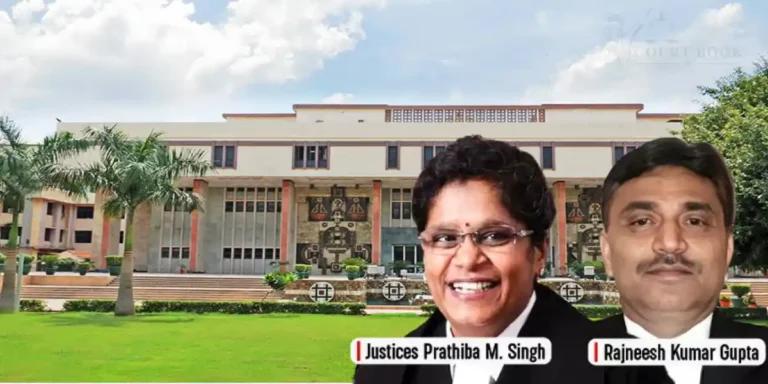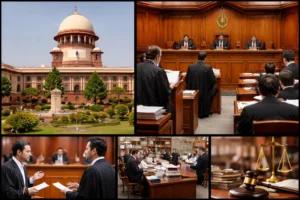The Delhi High Court has ruled that mere administrative reasons such as “movement of file” or “change in counsel” do not constitute a “sufficient cause” to justify condonation of an excessive delay in filing an appeal under Section 37 of the Arbitration and Conciliation Act, 1996.
A Division Bench comprising Justice Prathiba M. Singh and Justice Rajneesh Kumar Gupta passed this ruling while hearing Union of India v. M/s Rajiv Aggarwal (Engineers and Contractors) [FAO (COMM) 142/2025 & CM APPLs. 32316-18/2025]. The Union of India had sought to challenge a 2023 Commercial Court judgment that upheld an arbitral award dated June 15, 2018. However, the appeal was filed with a delay of 613 days.
“The object of speedy disposal under the Act would only be achieved by making such appeals also bound by the limitation period which is prescribed for filing of petitions under Section 34 of the Act,”
– Delhi High Court
Read Also:- MP High Court Grants Bail to Lecturer Accused of Circulating Sensitive WhatsApp Content
Background of the Case
On December 16, 2015, the Northern Railways awarded a contract worth ₹2.5 crores to M/s Rajiv Aggarwal for construction works at Shakur Basti. However, the contract was terminated on June 13, 2016, allegedly without justification. The dispute was referred to arbitration, and the arbitrator partly allowed the contractor’s claims in the award pronounced on July 24, 2018.
The Union of India challenged the arbitral award under Section 34 before the Commercial Court. The petition was dismissed on July 1, 2023. Subsequently, the Union filed an appeal under Section 37 along with an application seeking condonation of the 613-day delay, citing administrative procedures including file movement and changes in legal counsel.
Read Also:- Madras High Court Quashes Blanket Vehicle Pass Mandate for Madurai Murugan Conference
The Court emphasized that Section 13(1) of the Commercial Courts Act prescribes a 60-day limitation period for such appeals, which may be extended in exceptional cases. The Court relied heavily on the Supreme Court’s decision in Government of Maharashtra v. Borse Brothers Engineers & Contractors Pvt. Ltd. (2021), reiterating that delay can only be condoned “by way of exception and not by way of rule.”
“The expression ‘sufficient cause’ is not itself a loose panacea for the ill of pressing negligent and stale claims,”
– Supreme Court in Borse Brothers quoted by Delhi High Court
Read Also:- Rajasthan High Court Grants Temporary Bail to NDPS Accused on Humanitarian Grounds to Support Pregnant Wife
The High Court noted that despite receipt of the Commercial Court’s order in June 2023, the internal approval process dragged on till March 2024. Furthermore, a change in legal counsel added to the delay, but none of these constituted valid reasons to override the limitation mandate.
The Bench also referred to its own recent decision in Delco Infrastructure Projects Pvt. Ltd. v. Intec Capital Ltd., where similar grounds were rejected for not satisfying the “sufficient cause” requirement.
“Any delay in filing appeals under Section 13(1A) of the Commercial Courts Act, 2015 cannot be condoned unless the court is satisfied that the appellants were prevented from sufficient cause,”
– Delhi High Court
Case Title: Union of India v. M/s Rajiv Aggarwal (Engineers and Contractors)
Case Number: FAO(COMM) 142/2025 & CM APPLs. 32316-18/2025
Counsel for Appellant: Mr. Farman Ali, Mr. Taha Yasin, Ms. Usha Jamnal, and Mr. Dhruv Arora, Advocates














